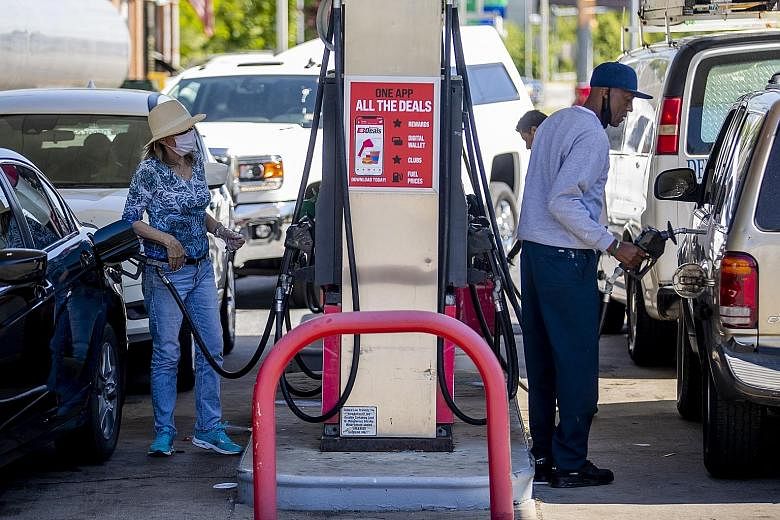WASHINGTON • Colonial Pipeline paid nearly US$5 million (S$6.6 million) to Eastern European hackers, contradicting reports earlier this week that the company had no intention of paying an extortion fee to help restore the country's largest fuel pipeline, according to two people familiar with the transaction.
The company paid the ransom in difficult-to-trace cryptocurrency within hours after the attack on May 7, underscoring the immense pressure faced by the Georgia-based operator to get petrol and jet fuel flowing again to major cities along the Eastern Seaboard, those people said.
The pipeline shutdown has led to fuel shortages and lines at petrol stations along the East Coast.
A third person familiar with the situation said US government officials are aware that Colonial made the payment.
Once they received the payment, the hackers provided the operator with a decrypting tool to restore its disabled computer network. The tool was so slow that the company continued using its own backups to help restore the system, one of the people familiar with the company's efforts said.
A representative from Colonial declined to comment. The company said it began to resume fuel shipments on Wednesday.
When Bloomberg News asked President Joe Biden if he was briefed on the company's ransom payment, he paused, then said: "I have no comment on that."
The hackers, which the Federal Bureau of Investigation (FBI) said are linked to a group called DarkSide, specialise in digital extortion and are believed to be located in Russia or Eastern Europe.
On Wednesday, media outlets including the Washington Post and Reuters, also based on anonymous sources, reported that the company had no immediate intention of paying the ransom.
Ransomware is a type of malware that locks up a victim's files, which the attackers promise to unlock for a payment. More recently, some ransomware groups have also stolen victims' data and threatened to release it unless paid - a kind of double extortion.
The FBI discourages organisations from paying ransom to hackers, saying there is no guarantee they will follow through on promises to unlock files. It also provides incentive to other would-be hackers, the agency says.
However, Ms Anne Neuberger, the White House's top cyber security official, pointedly declined to say whether companies should pay cyber ransoms at a briefing earlier this week.
"We recognise, though, that companies are often in a difficult position if their data is encrypted and they do not have backups and cannot recover the data," she told reporters on Monday.
Mr Biden reassured US motorists that fuel supplies should start returning to normal this weekend.
Colonial Pipeline said late on Thursday that it had restarted its entire pipeline system and had begun deliveries in all of its markets. It will take several days for shipments to return to normal along its 8,850km route, it said.
Some markets "may experience, or continue to experience, intermittent service interruptions," Colonial Pipeline said in a statement, echoing Mr Biden who said earlier there could be "hiccups". The pipeline carries 379 million litres of petrol, diesel and jet fuel per day.
Petrol shortages worsened from Virginia to Florida as depots and distribution centres awaited supplies. The shutdown also forced two refineries to curb output.
BLOOMBERG, REUTERS

